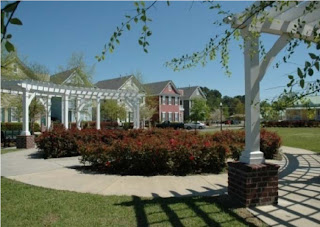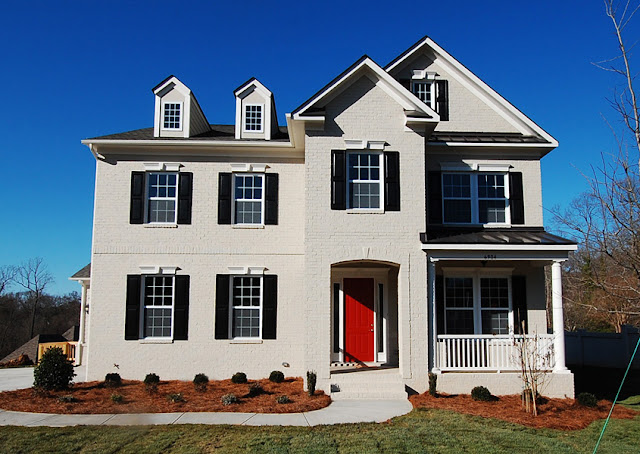In an ever-growing environmentally conscious society, True Homes in Charlotte, North Carolina understands the importance of helping our residents live the life they’ve always imagined—a comfortable, delightful, and sustainable existence. Since True Homes already provides you with superb indoor air quality, lowered VOC’s, energy efficiency, and plenty of natural lighting in your home, what’s the next step in making your home sustainable? The answer is simple: go outside!
1. Reduce Harmful Garden Chemicals
One of the biggest mistakes that individuals make in their gardens today is adding unnecessary chemicals to the soil. Before using harsh fertilizers, it’s important to have your soil tested. A soil test will tell you which, if any, nutrients and chemicals it is lacking. By doing this in advance, you’ll be reducing the amount of fertilizers and pesticides in your garden, improving the water and air quality in your area for all living things. Also, you should consider using organic fertilizers, such as specialized manures and compost. These can help enrich your soil while naturally inhibiting the growth of weeds.
2. Build A Fence—Of Life!
Instead of opting for a backyard or garden fence made of plastic, metal, or wood, try planting small trees or bushes to create a natural fence. Not only does this add an element of uniqueness to your backyard or garden, but is also very eco-friendly. Additionally, you can grow hedges much taller than you could feasibly build a fence, which can provide you with increased privacy over time.
wood, try planting small trees or bushes to create a natural fence. Not only does this add an element of uniqueness to your backyard or garden, but is also very eco-friendly. Additionally, you can grow hedges much taller than you could feasibly build a fence, which can provide you with increased privacy over time.
3. Select Plants Native To Your Geographic Region
Selecting plants native to your area makes it easier to maintain them throughout the year. Some plants are more sensitive to extreme climate changes, and are not feasible for areas that experience cold winters like Charlotte. While you can certainly grow more exotic plants in your garden, they will require a lot more work, especially during the winter.
4. Make A Rain Barrel
Rain barrels are a great way to collect rainwater that you can reuse to water your garden later on. Making a rain barrel is a great idea to help minimize the amount of excess water you’re using and ensures that your plants are being soaked with all-natural rain that hasn’t been chemically treated. Reusing rainwater can also lower your water bill, which gives you more money to grow your garden or pursue other home improvement projects.
5. Recycle, Recycle, Recycle!
If you’re considering building a fence or deck in your outdoor area, consider using recycled materials or reusing concrete pieces or bricks. Repurposing materials helps eliminates the need for additional wood and adds a vintage touch to your new project.
At True Homes in Charlotte, North Carolina, our goal is to provide you with the house of your dreams. We can help you achieve a comfortable, affordable, and environmentally friendly home for you and your family. To speak with our sales representatives about your options today, please call (704) 271-1191 or visit us on the web at: www.truehomesusa.com.
1. Reduce Harmful Garden Chemicals
One of the biggest mistakes that individuals make in their gardens today is adding unnecessary chemicals to the soil. Before using harsh fertilizers, it’s important to have your soil tested. A soil test will tell you which, if any, nutrients and chemicals it is lacking. By doing this in advance, you’ll be reducing the amount of fertilizers and pesticides in your garden, improving the water and air quality in your area for all living things. Also, you should consider using organic fertilizers, such as specialized manures and compost. These can help enrich your soil while naturally inhibiting the growth of weeds.
2. Build A Fence—Of Life!
Instead of opting for a backyard or garden fence made of plastic, metal, or
 wood, try planting small trees or bushes to create a natural fence. Not only does this add an element of uniqueness to your backyard or garden, but is also very eco-friendly. Additionally, you can grow hedges much taller than you could feasibly build a fence, which can provide you with increased privacy over time.
wood, try planting small trees or bushes to create a natural fence. Not only does this add an element of uniqueness to your backyard or garden, but is also very eco-friendly. Additionally, you can grow hedges much taller than you could feasibly build a fence, which can provide you with increased privacy over time.3. Select Plants Native To Your Geographic Region
Selecting plants native to your area makes it easier to maintain them throughout the year. Some plants are more sensitive to extreme climate changes, and are not feasible for areas that experience cold winters like Charlotte. While you can certainly grow more exotic plants in your garden, they will require a lot more work, especially during the winter.
4. Make A Rain Barrel
Rain barrels are a great way to collect rainwater that you can reuse to water your garden later on. Making a rain barrel is a great idea to help minimize the amount of excess water you’re using and ensures that your plants are being soaked with all-natural rain that hasn’t been chemically treated. Reusing rainwater can also lower your water bill, which gives you more money to grow your garden or pursue other home improvement projects.
5. Recycle, Recycle, Recycle!
If you’re considering building a fence or deck in your outdoor area, consider using recycled materials or reusing concrete pieces or bricks. Repurposing materials helps eliminates the need for additional wood and adds a vintage touch to your new project.
At True Homes in Charlotte, North Carolina, our goal is to provide you with the house of your dreams. We can help you achieve a comfortable, affordable, and environmentally friendly home for you and your family. To speak with our sales representatives about your options today, please call (704) 271-1191 or visit us on the web at: www.truehomesusa.com.

I really want to make my home looks better not only inside but also outside, that's why I'm going to decide to make a backyard landscaping and for sure these tips will help me start successfully.
ReplyDeleteMonument landscape